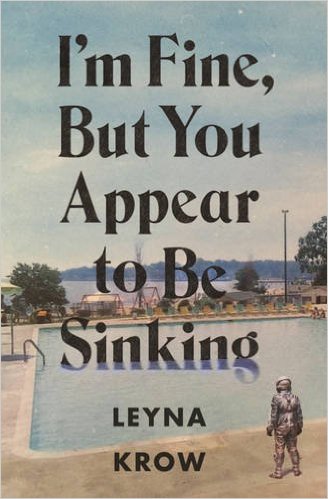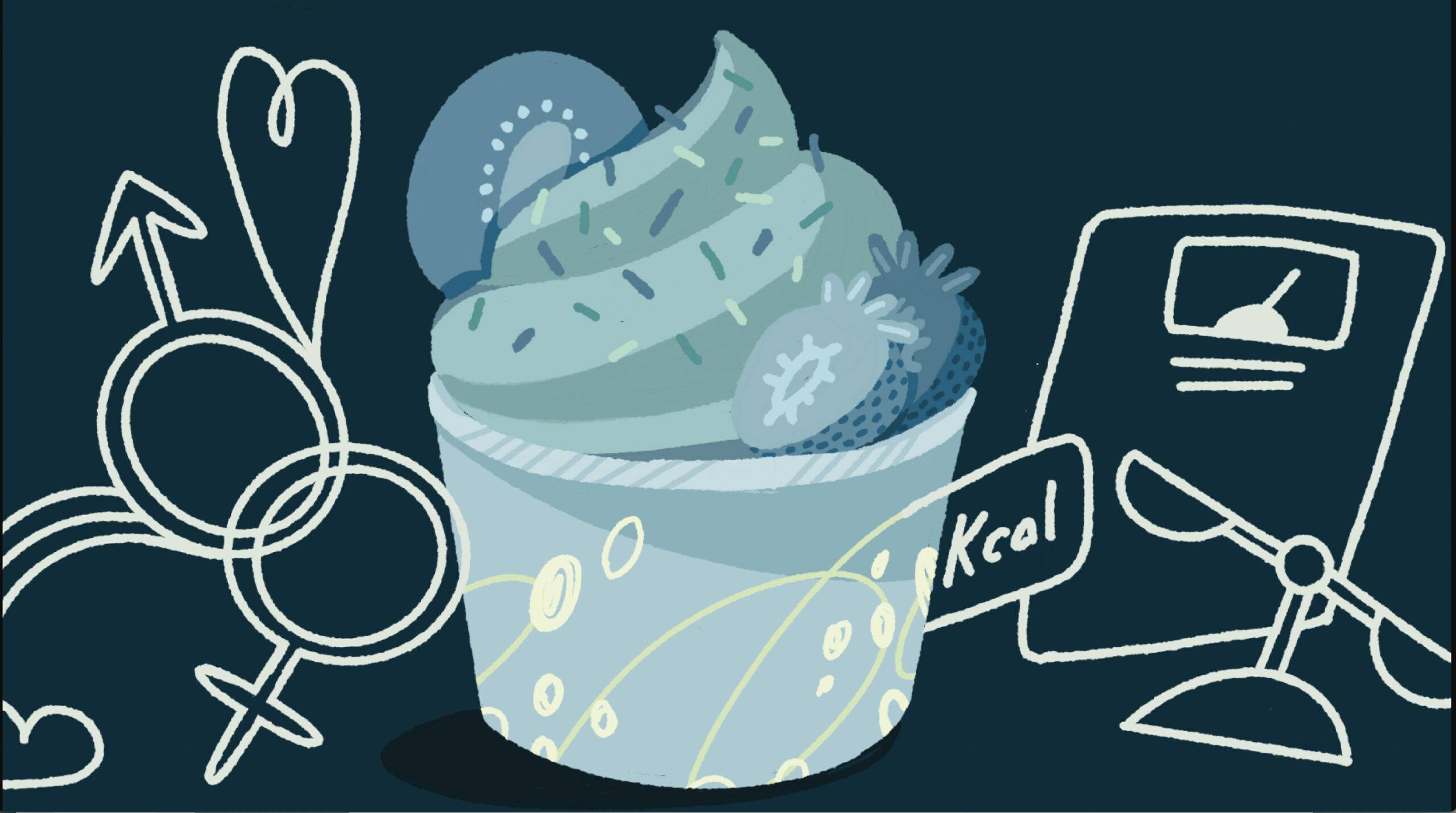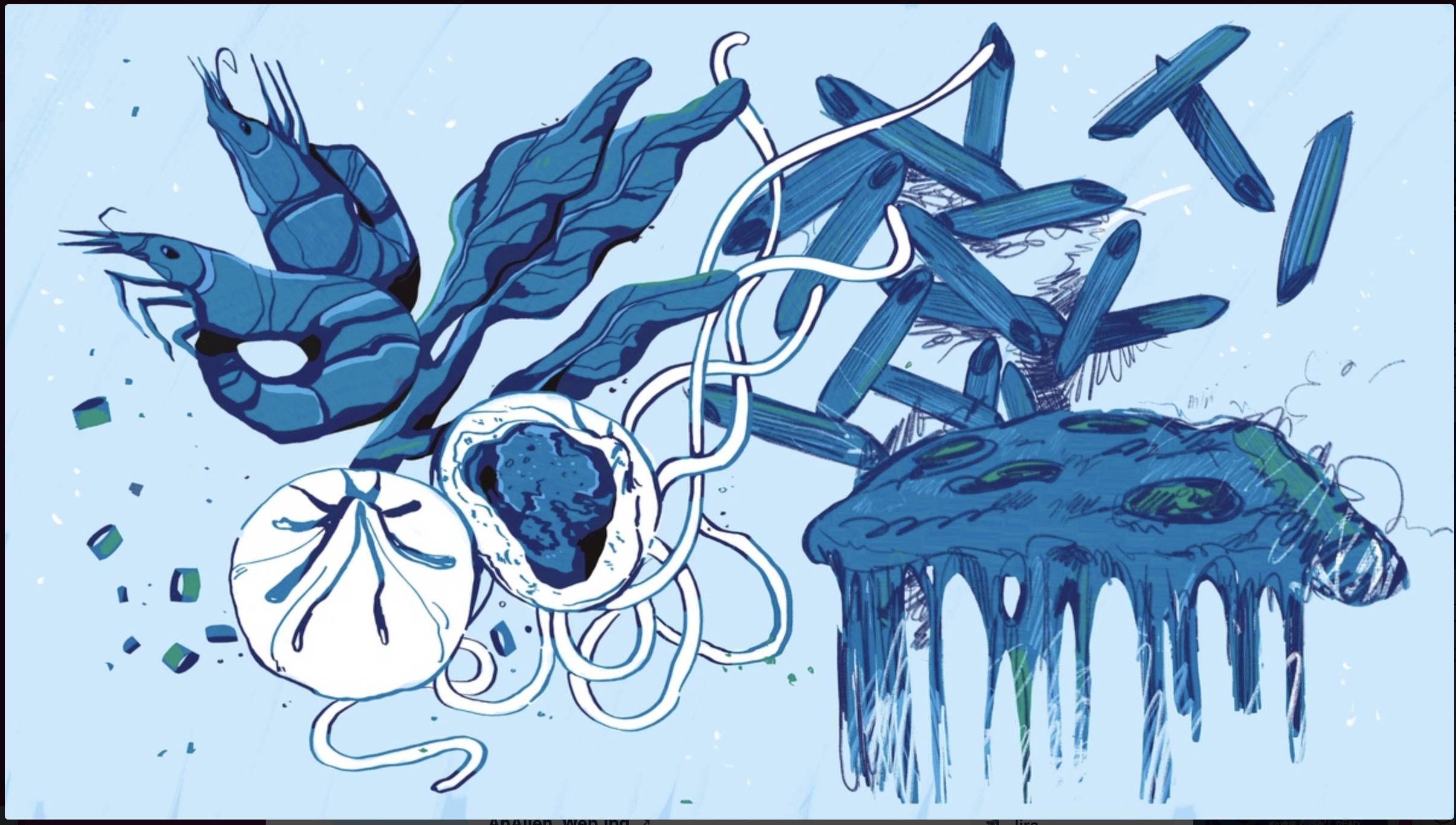
Image courtesy of Featherproof Books.
It’s a strange, strange world; anything could happen. But perhaps the strangest thing to happen, at least as far as writer Leyna Krow is concerned, is the deceptively simple reality of being human.
Krow’s collection of short stories, “I’m Fine, But You Appear to Be Sinking” is unified by its exploration of the nature of the human animal — wherever she may find herself. The characters in this collection are curious but defeated; they make decisions about how to feel and generally land somewhere between apathetic, vaguely uncomfortable, and pleased. These deadpan reactions are jarring, because they’re set against the stuff of science fiction: giant squid, sinking ships, walls of snakes, unnamed predators, and failing rockets.
“I’m Fine, But You Appear to Be Sinking,” the latest release from indie favorite Featherproof Books (helmed by School of the Art Institute alum Tim Kinsella), is technically composed of 15 short stories. (Really, though, it’s only nine — “Spud & Spud II” is split into seven parts, with a rotating cast of narrators.) It came out on Valentine’s Day, which I imagine was a deliberately ironic move on the part of the publisher: I’ve never read a series of stories about people who are more demonstrably alone.
There is, certainly, an overall tongue-in-cheek-ness about Krow’s style; the collection begins with an “Index of Things to Come,” which contains, among others, “Deliberate movement of small rocks,” “Fish-out-of-water (literally),” “Fish-out-of-water (metaphorically),” and “Trouble in kitchens.” In the midst of her deliberate and quaint prose, though, are some unsettling themes that get right at the center of what it means to be a human living in the wild.
Many of the characters in this collection, for example, are dying, or looking death in the face. (Krow would probably argue that we are all dying, but I mean it in the more immediate sense of the word.) As they face the ultimate end in slow motion, they “want to be surprised,” or “find answers unsatisfying.” In one of the final installments of “Spud & Spud II,” a character muses:
Nothing is connected and everyone is isolated, spinning quietly on their own private planets, victims of gravity and time. Any illusions of shared experience are just that — illusions. And on the rare occasion people in their sad, private planet bubbles do interact, it only leads to pain.
This idea comes as a relief.
It’s a simultaneously bleak and bright inkling — and that’s the point.
The stories themselves run the gamut of topics and scenes. There’s the tale of the person who finds an unidentifiable animal that turns out to (maybe) be eating local cats; there’s one about a secretive neighbor who is (maybe) harboring an illegal tiger in a tiny space; and then there’s one about a man who pushes a button in Detroit that causes the contents of a California man’s kitchen shelves — that (maybe) contain mostly meat — to fall on the kitchen floor.
And I really can’t overstate the amount of important squid there are in these stories. (According to the Index, there are 53 pages of squid.)
If you’re thinking this all sounds pretty weird and sort of funny, you’re right. That’s what makes the unapologetically existential subject matter prickle so much. These stories conjure the kind of discomfort I associate with watching gross-out scenes in the ‘90s cartoon “Ren and Stimpy” — but for grownups.
Literally, it bears noting that these stories are painfully hip; occasionally they are hip to a fault. They are written almost entirely in present-tense (which is the trendy tense to write in these days), and there are references to Crystal Light against old-school seafarer notes. There’s a story (about the apocalypse) that is at least half foot notes, à la hipster luminary David Foster Wallace. One of the stories is about a girl eating a waxy Boston cream pie in a hotel in Portland, Oregon. I’m just saying: This book would be comfortable on a shelf at Urban Outfitters.
If you can get past that, though (and you can, because you are reading an art school newspaper), you’ll be rewarded with a collection that altogether is unlike anything else out there. It’s dark, strange, funny, and purposeful. “I’m Fine, But You Appear to Be Sinking” is just the ticket to get you through the last days of winter, and (maybe) into the beginning of the end of the world.





















